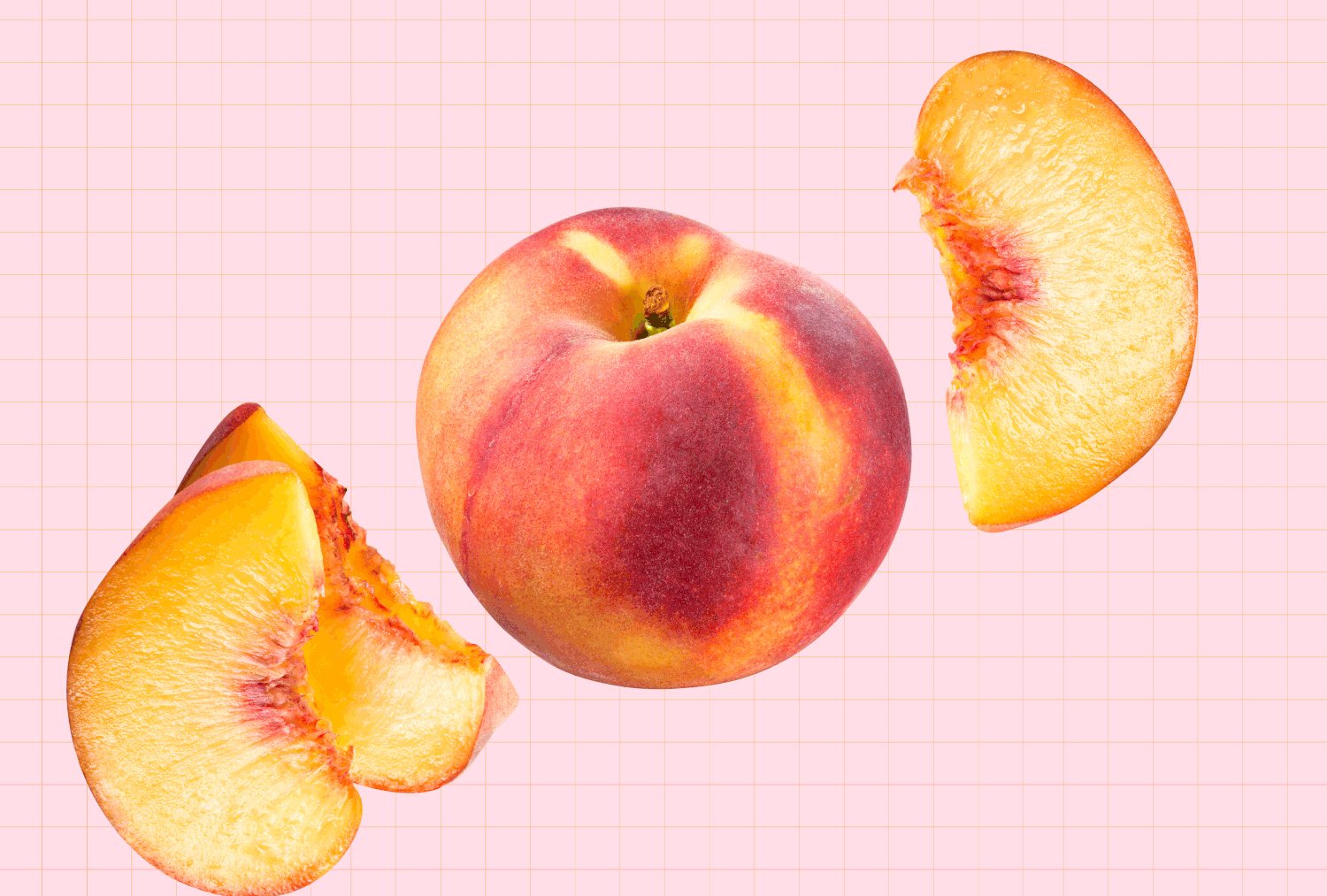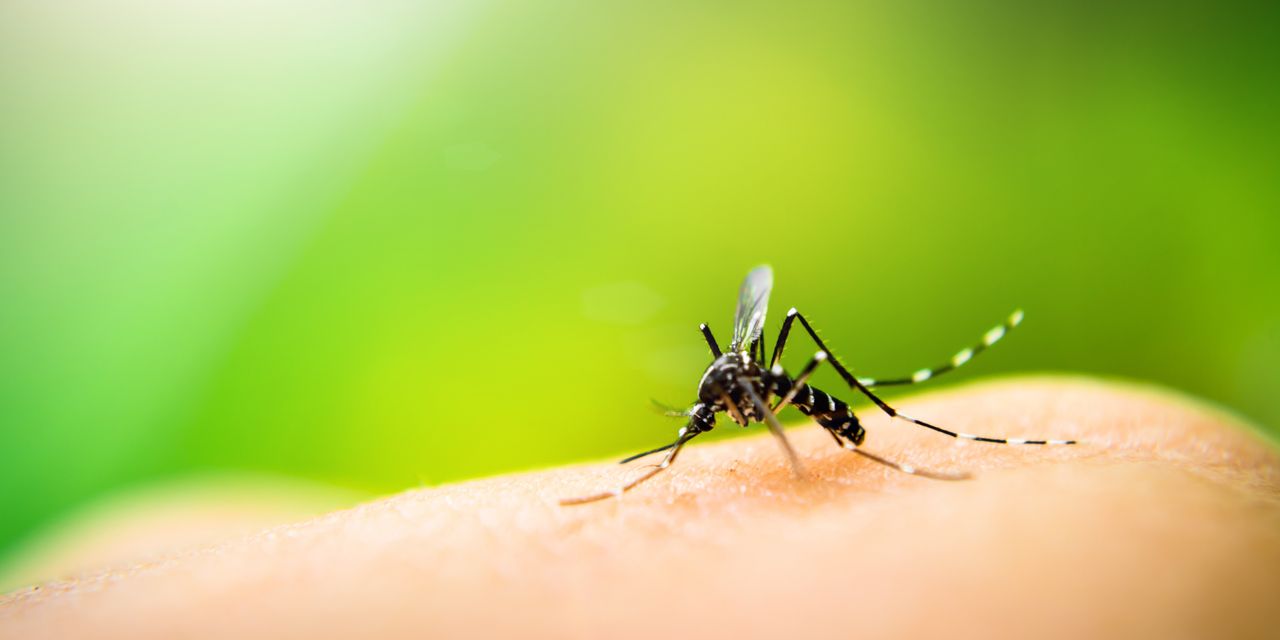Blog
What Happens to Your Body When You Eat Peaches Regularly

- Peaches may support heart, vision and gut health, thanks to their fiber and antioxidant offerings.
- Avoid peaches if you have an allergy to the fruit (or to stone fruit). You may want to limit them if you have IBS.
- Enjoy peaches baked into a dessert, paired with grilled meats or as a snack on their own.
There’s nothing sweeter than a juicy peach in the summer. From snacking to grilling to baking, there are so many ways to enjoy peaches. But taste isn’t the only reason to love this fruit. “Peaches offer several evidence-backed health benefits that go beyond their sweet, juicy taste,” says Jamie Lee McIntyre, M.S., RDN. Peaches are packed with beneficial nutrients that support heart health, reducing inflammation and more. Keep reading to learn the health benefits of peaches, as well as creative ways to incorporate them into desserts, snacks and even meals.
Why We Love Peaches
May Improve Digestion
“Peaches provide a gentle source of dietary fiber, which helps support healthy digestion and regular bowel movements,” says McIntyre. “One medium peach contains about 2 grams of fiber, including both soluble and insoluble fibers. Soluble fiber feeds beneficial bacteria in the gut, while insoluble fiber helps move waste through the digestive tract.”
May Reduce Inflammation
Chronic inflammation is the driver of many diseases. Peaches contain a variety of phytonutrients, like beta carotene, anthocyanins and lutein. They also have some vitamin C, which is a potent antioxidant. “These compounds help protect cells from oxidative stress, which would otherwise contribute to some diseases,” says McIntyre. But make sure you eat the peel to get all the benefits of the fruit—much of the fiber and antioxidants are in the skin itself.
[MID CIRC]
May Lower Blood Pressure
Foods with potassium, like peaches, may help lower blood pressure. Potassium offsets the effects of sodium in the body and can relax blood vessels. Peaches contain a plethora of other nutrients that support heart health, too. “Peaches offer potassium, vitamin C, fiber and beta carotene, which together help lower blood pressure and improve cholesterol levels, and can reduce overall risk of heart disease when eaten regularly as part of a heart-healthy diet and lifestyle,” says McIntyre.
May Support Healthy Blood Sugar Levels
If you have diabetes, you may be worried about the sugar and carbohydrates in some fruits, especially sweet-tasting fruits like peaches. Surprisingly, a medium-size peach has only about 15 grams of total carbohydrates. Compare that with about 25 grams in one medium apple. While all fruits can be enjoyed by individuals with diabetes, peaches may make it easier to keep blood sugar balanced, especially if paired with foods with ample protein and fat.
May Benefit Vision
Beta carotene, lutein and zeaxanthin are carotenoids that give peaches their red and yellow hue. They also act as powerful antioxidants, protecting our eyes from oxidative damage. Studies show that high intakes of lutein and zeaxanthin are protective against cataracts and age-related macular degeneration, a leading cause of vision loss in older adults.
Nutrition Information
One medium peach (147 grams) contains the following nutrients:
- Calories: 68
- Carbohydrates: 15 g
- Dietary fiber: 2 g
- Total sugar: 12 g*
- Added sugar: 0 g
- Protein: 1 g
- Total fat: 0 g
- Saturated fat: 0 g
- Cholesterol: 0 g
- Sodium: 19 mg
- Vitamin C: 6 mg
- Vitamin A: 35 mcg
- Potassium: 179 mg
*Sugar in peaches is naturally occurring.
Are Peaches Safe for Everyone to Eat?
Peaches are safe for most people to eat, but some people should limit or avoid them altogether. “Individuals with a known peach allergy must avoid eating them entirely,” says Stacey Woodson, M.S., RDN, LDN, a registered dietitian and author. “Peaches belong to the stone fruit family, along with nectarines, plums and cherries. If you have stone fruit allergies, you are at greater risk of experiencing a peach allergy, so consult with your doctor before introducing peaches to your diet,” adds Woodson.
Since peaches have potassium, they could be a concern for individuals taking diuretics that retain potassium, such as spironolactone. Peaches contain about 4% of the Daily Value for potassium, so check with your health care provider to see if it is OK to eat peaches while taking this medication.
You may want to limit or avoid peaches if you have irritable bowel syndrome. White and yellow peaches are high in FODMAPs (fermentable oligosaccharides, disaccharides, monosaccharides and polyols), which can worsen IBS symptoms.
5 Ways to Enjoy Peaches
- Enjoy as a summer snack. Fresh peaches are a sweet and juicy snack in the summer. They’re delicious on their own and are also convenient for the beach, boat or pool, says McIntyre.
- Add to oatmeal or a yogurt parfait. Fresh, frozen and canned peaches are a sweet and juicy addition to oatmeal or yogurt. McIntyre loves baking them into oatmeal squares. Or try our Peach Pie Overnight Oats for a breakfast that tastes like dessert!
- Toss into a salad. Because they are naturally sweet, peaches pair well with bitter greens, like arugula or Brussels sprouts. Try a shaved Brussels sprouts salad with sliced peaches and goat cheese, or this Green Salad with Peaches, Feta & Mint Vinaigrette.
- Throw on the grill. Grill sliced peaches and pair them with meat or fish kebabs, recommends McIntyre, for a simple summer dinner. If you have a little more time, you have to try our Grilled Salmon and Peaches with Basil-Pistachio Gremolata.
- Bake for a decadent dessert. Baked peaches are delicious paired with vanilla ice cream, or if you’re craving cobbler, you’ll love our Easy Peach Cobbler.
Our Expert Take
The benefits of peaches go beyond their sweet taste and versatility in the kitchen. Peaches are rich in phytonutrients that tackle free radicals and reduce inflammation throughout the body. Peaches offer potassium, fiber and other nutrients that support a healthy heart and gut. You can enjoy peaches at any meal or snack, including dessert! They are delicious at breakfast, in a salad, grilled, or baked.
Frequently Asked Questions
Is it OK to eat peaches every day?“Eating peaches every day is perfectly fine for most people,” says McIntyre. However, if you’re concerned about blood sugar management, McIntyre recommends sticking to fresh or frozen peaches instead of peaches in syrup and suggests pairing peaches with a source of protein or healthy fat, like almond butter or Greek yogurt.
How many peaches can I have a day?The 2020-2025 Dietary Guidelines for Americans recommends about two servings of fruit per day. One serving is equivalent to one medium peach. McIntyre says, “One to two medium peaches per day is a reasonable amount for most healthy adults. That provides about 70 to 140 calories and 2 to 4 grams of fiber, depending on the size of the peach.”
Do peaches have a laxative effect?Peaches likely won’t have a laxative effect. “With approximately 2 grams of fiber per average-size peach, they can provide gentle digestive support that may help promote regular bowel movements,” says Woodson.
When should I not eat a peach?You should not eat peaches if you are allergic to them or if you have a stone fruit allergy, says Woodson. You may also want to limit or avoid peaches if you are taking a medication that retains potassium or you have IBS and can’t tolerate peaches.












